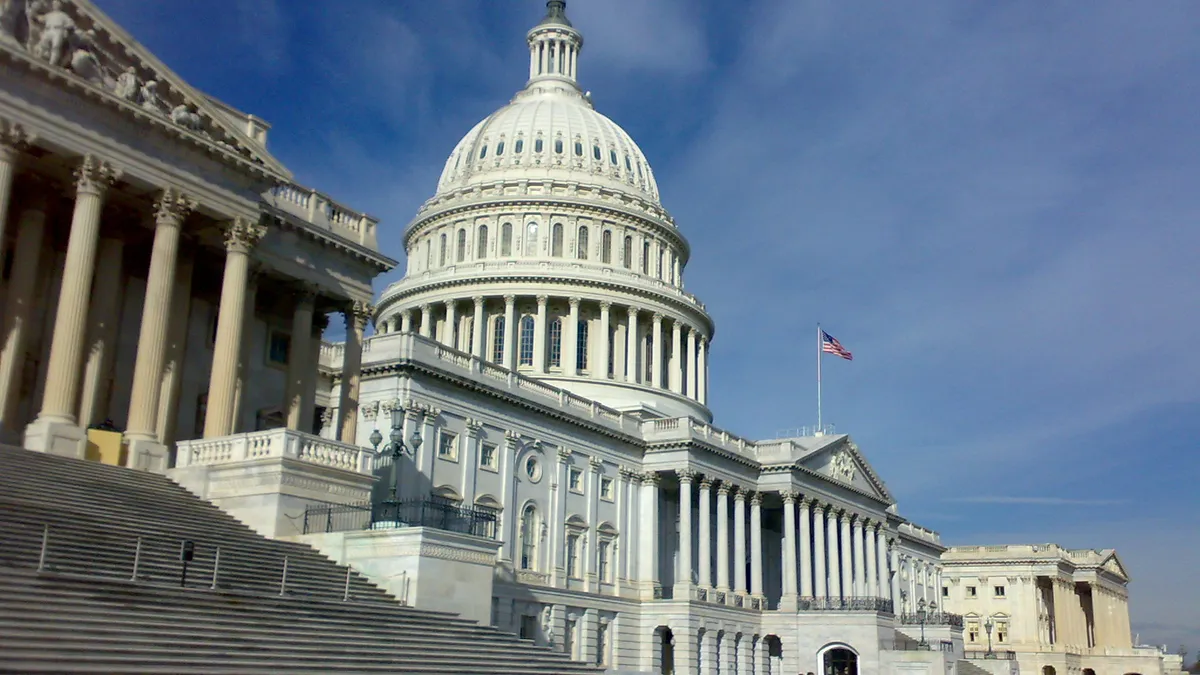Dive Brief:
- Feedback on draft legislation that would overhaul how laboratory developed tests (LDTs) and in vitro diagnostics (IVDs) are regulated offered by groups including The American Clinical Laboratory Association, AdvaMedDx and The Pew Charitable Trusts suggest a slate of competing interests and a potentially long path ahead.
- The newest version of the draft legislation, deemed the VALID Act, incorporated significant suggestions from FDA including a precertification program for both device types. That idea drew fire from Pew, which cautioned it may open patients to risk from unreviewed products.
- But ACLA argued a too-narrow scope for the program could limit its usefulness, and AdvaMedDx is pushing to give FDA more authority to determine which types of products are eligible for precertification.
Dive Insight:
The legislation aims to regulate LDTs and IVDs on a level playing field as in vitro diagnostic tests (IVCTs). AdvaMedDx has been pushing to bring LDTs under stricter regulation, while ACLA has lobbied to maintain flexibility for what it argues is a critical service for patients.
ACLA President Julie Khani told lawmakers the legislation, as written, would subject clinical labs to duplicative regulation from both CMS and FDA, create transition period confusion and grant FDA too much power through claw-back provisions.
While satisfied with the draft legislation, AdvaMedDx proposed a variety of technical changes including several changes to definitions "to avoid confusion and ensure that the legislation can be implemented in a manner that tailors appropriate oversight to various test technologies based on their level of risk and potential impact on public health."
The trade lobby also is pushing for lawmakers to more clearly implement a risk-based approach to IVCTs delineating requirements for high, moderate and low risk tests. AdvaMedDx also wants FDA to maintain a list of low-risk tests subject to premarket review.
"An overarching, modernized regulatory framework for all diagnostics tests is key to spurring innovation in diagnostics testing for patients and public health," Susan Van Meter, executive director of AdvaMedDx, said in a statement.
The adoption of FDA’s suggestion for an IVCT precertification program in the VALID Act drew support from AdvaMedDx, which urged lawmakers to eliminate default statutory disqualification for the program, arguing FDA should determine the tests not appropriate for precertification.
The Pew Charitable Trusts raised concern that while a precertification model could help FDA save regulatory resources, under such a program test developers could potentially legally market tests that have never been reviewed by the agency.
"If a precertification pathway is implemented, it would also mark a significant change to the current FDA approval paradigm, shifting much of the focus of FDA oversight for these tests from premarket review to the postmarket context," Elizabeth Richardson, Pew project director for healthcare products, wrote in the nonprofit’s comment. "If the eligibility standards for precertification are too low, patients will be put at risk."
ACLA argued that the precertification program "is on the right track" but "requires several modifications." The clinical lab trade group argued that the program should not be based on a single technology, but rather a developer’s capabilities, similar to FDA’s digital software precertification program.
"An overly narrow scope can reduce or eliminate the usefulness of precertification by requiring an increased number of premarket submissions. This increases the burden on laboratories to prepare (and renew) multiple applications, and it increases the burden on FDA to review those multiple applications (and renewals)," Khani said.
Pew also raised concern that while the VALID Act shortens certain timelines for reporting adverse events, "the scope of reportable adverse events is concerningly narrow." The group urged lawmakers to broaden collection of postmarket information to equip FDA to take action when necessary.
Finally, Pew is concerned relying on third party contractors to review IVCTs and an overall lack of funding will hamper the effort to better oversee the industry. While the draft raises the possibility of the establishment of a user fee program, "it is important that funding for this regime is adequate — this may require a combination of user fees and congressional appropriations," Richardson wrote.
ACLA and Pew both noted if user fees are implemented, smaller test developers may be impeded from the market without a proper structure for the program. ACLA argued a user fee cap or fee waivers for small labs or academic centers may be appropriate.
A spokesman for draft bill author Rep. Larry Bucshon, R-Ind., told MedTech Dive review of stakeholder comments will take some time before next steps for the legislation are decided. Lawmakers are working on a companion bill in the Senate.











